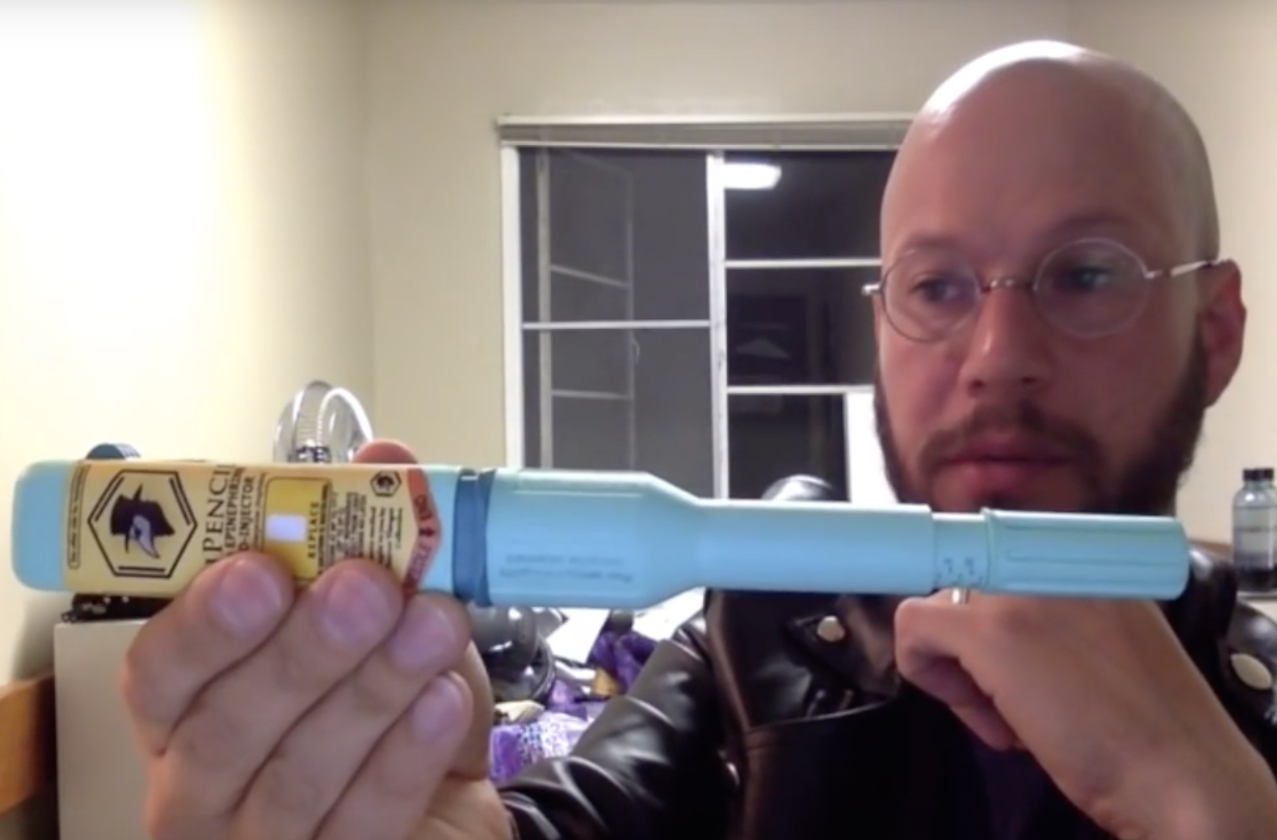

Serious allergic reactions can be frightening, and for those who suffer from them, the process of injecting oneself with a lifesaving EpiPen, a rapid injection device that delivers epinephrine to reverse the allergic reaction known as anaphylaxis, can be a frustrating routine.
This is why consumers were taken aback when pharmaceutical company Mylan raised the price of the EpiPen from under $100 in 2007 (when the company first acquired the product), to over $600 earlier this year, as The New York Times reported. This price increase has left many allergy sufferers — and their friends, family members, even government officials— angry and worried.

Michael Laufer and his cohort of DIY medical activists at Four Thieves Vinegar Collective, a group that views affordable lifesaving treatments as a basic human right, have decided to do something about it, reports IEEE Spectrum. According to a statement published on the group’s website, Laufer et al have developed the EpiPencil, which they say, “can be built entirely using off-the-shelf parts, for just over $30 US.” They posted a video of Laufer assembling the device, as well as a list of retailers that sell the required items.
The active ingredient, epinephrine, is not controlled by Mylan and can be legally obtained by a patient who has a prescription. Laufer does not say where patients can obtain it without a prescription.
The group, who previously shared a method for manufacturing the drug pyrimethamine in response to Turing Pharmaceuticals hiking the drug’s price more than 5,000 percent last year, says its mission is “free medicine for everyone.”
And while Four Thieves Vinegar Collective’s stated aims of equal access to lifesaving medical care are admirable, it probably isn’t a great idea for patients to build crucial medical devices at home. Jennifer Miller, a professor of medical ethics at New York University, told IEEE Spectrum that she sees this form of DIY medicine as a new version of old quackery. “He’s basically saying, we should deregulate drugs, and allow anyone to make anything,” Miller told IEEE Spectrum. “That is not safe. We once had that system, and people died from it.”
So while it may seem wrong for a pharmaceutical company to gouge patients for a lifesaving piece of hardware, there may not be a safe alternative. After all, the FDA and other government regulatory agencies are in place to protect people from dangerous medical treatments, not merely as obstacles to healthcare access. And while the EpiPencil may be much cheaper than an EpiPen, it has not been proven safe or reliable. “If your child is having a life-threatening allergic reaction, you want to make sure they get the right medicine, at the right time, at the right dose,” Miller told IEEE Spectrum. “But you can’t guarantee that with this other device.”
